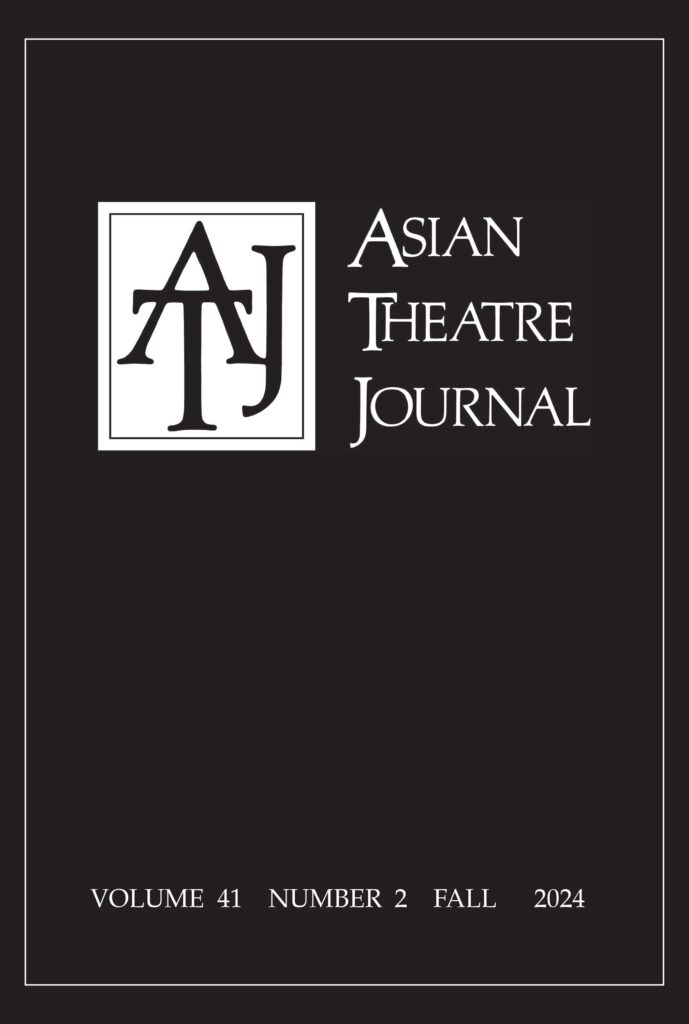
Asian Theatre Journal
Volume 41, Number 2 (2024)
Speaking of the Spiritual: An Exploration of Knowledge and Pedagogy in Performing Arts in Malang, East Java
Christina Sunardi
The Past in the Present: The Religious and Royal Dimension of Newar Traditional Dance Theatre, Nepal
Gérard Toffin
Inventing the Tradition: Hybrid Gudianwu Training and Ambiguous Chineseness
Ziying Cui
A Babel of Nature: The English-Language Sources of Zheng Junli’s “Tan biaoyan” (On Acting, 1936)
Hanyang Jiang
Find these articles, emerging scholar articles, book reviews and more at Project MUSE.
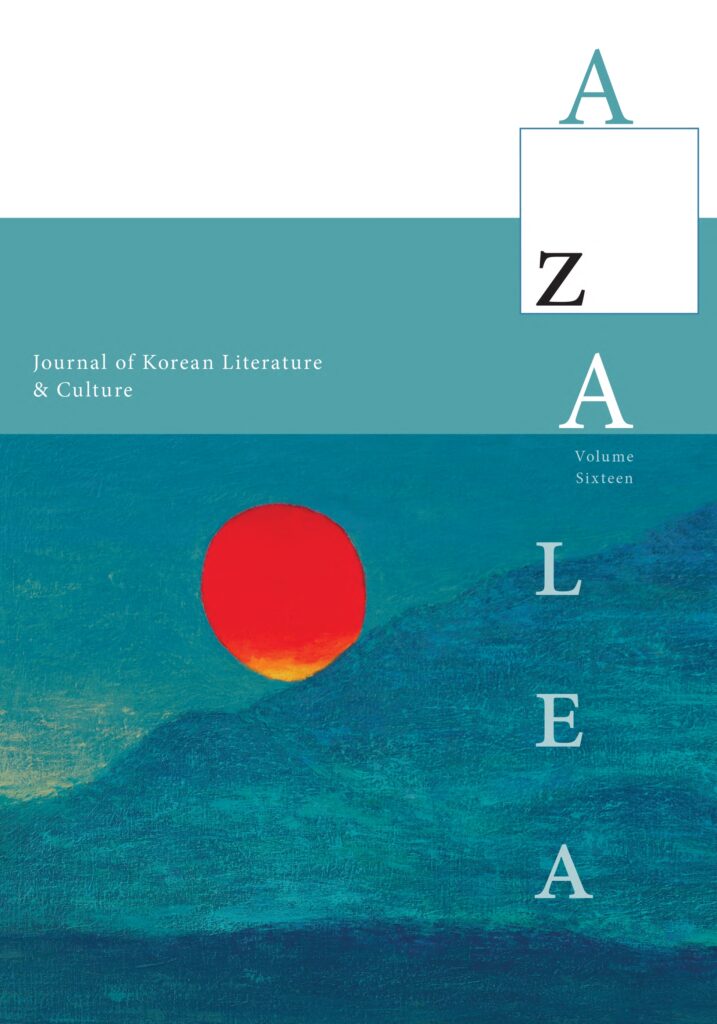
Azalea: Journal of Korean Literature & Culture
Special Features: Contemporary Korean Women Writers, Korean Women’s Poetry, Writer in Focus: Kwon Yeo-Sun, Voice from the Colonial Period: Imamura Eiji.
Volume 17 (2024)
Editor Young-Jun Lee introduces the new issue of Azalea with Special Features that focus on the Feminist Reboot of the 2010’s, stating:
Korean literature in the 20th century was dominated by men, but that changed in the 1990s after democratization and the rise of the economy. If you read literary magazines from the 1990s, you will find that names of women writers on the contents pages are strikingly more numerous than those of men. This trend has continued for almost three decades now and it is likely to continue for the foreseeable future, as long as Korean women writers are responding to Korean society, which keeps women in an inferior position. “Feminism Reboot” was one of the critiques of the resilient patriarchal system in Korea.
Personal income in South Korea has recently overtaken that of Japan. South Korea’s rise is not only economic, but also cultural. Pop culture fans, including many young people around the world, are fascinated by Korean culture and new works coming out of South Korea. The popularity of Korean language programs at universities around the world has gone beyond the limits of what those universities can accommodate. And yet, by any standard, it is still undeniable that women in South Korea are victims of serious social inequality.
Find this Editor’s note, articles, images, poetry, and more at Project MUSE.

Biography
Volume 46, Number 3 (2023)
Memoir, Utopia, and Belonging in the Postcolony: Akash Kapur’s Better to Have Gone
Hedley Twidle
Disability as Intersectional Identity: Some Reflections on Indian Disabled Life Narratives
P. Boopathi
Brother Outsider: Memoir and the Strategies of the Awkward Black
Tyrone R. Simpson II
Feminists Reclaim Mentorship: An Anthology by Nancy K. Miller and Tahneer Oksman, editors (review)
Elizabeth Colwill
Find these open-forum articles, reviews, and more at Project MUSE.
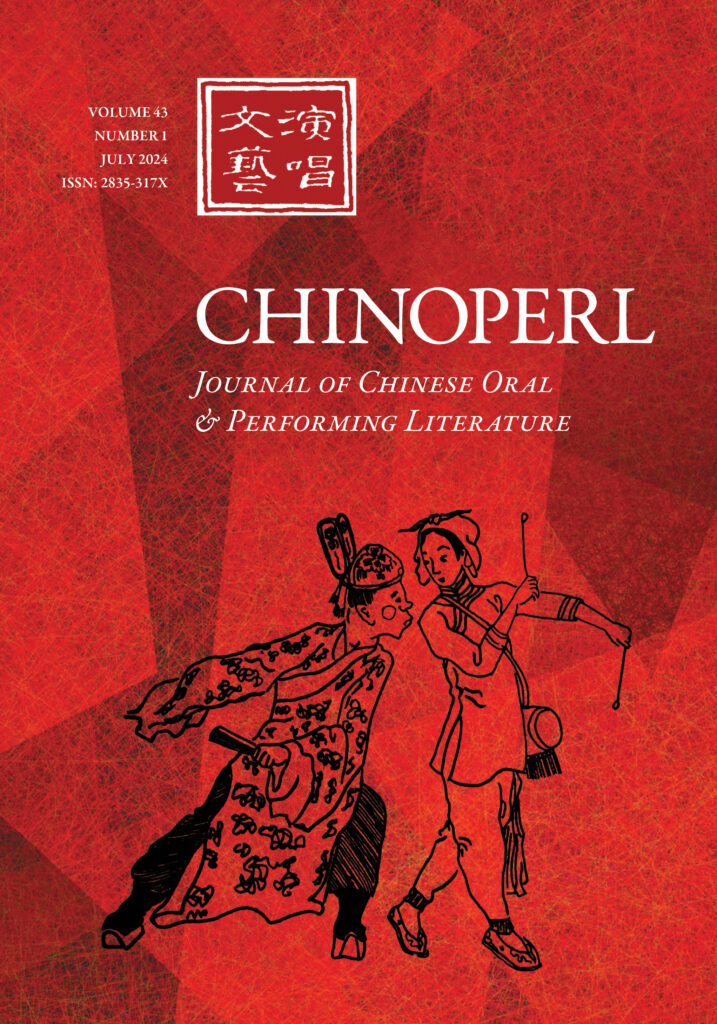
CHINOPERL
Volume 34, Issue 4 (2023)
The Aural/Visual Synchrony: Opera Film, Close-up, and Cinematic Literacy in Mao-era China (1949–1966)
Qiliang He and Lily Xiangxiang Jiang
Reading as Reliving: The Multimedia Pingshu Romance of the Three Kingdoms and Its Republican-Era Ancestors
Canaan Morse
In Memory of Fei Li (1931–2022): A Yangzhou Storyteller and Scholar of Yangzhou Pinghua
Vibeke Børdahl
The Stage in the Temple: Ritual Opera in Village Shanxi by David Johnson (review)
Fan Pen Chen
Find these research articles, memoriams, book reviews and more at Project MUSE.
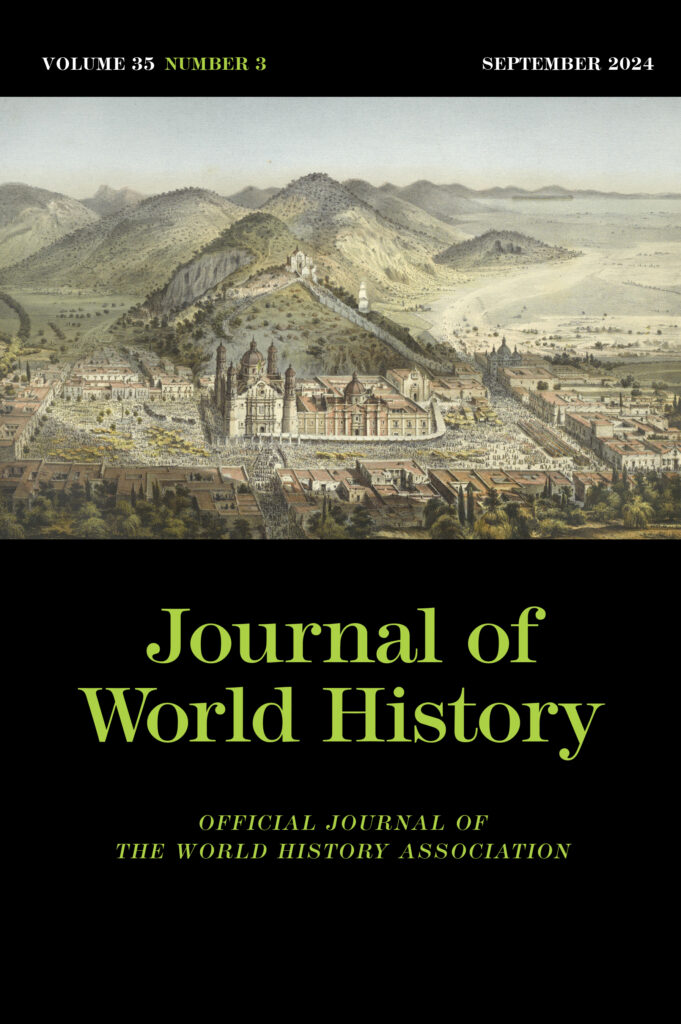
Journal of World History
Volume 35, Issue 3 (2024)
Ritual in the Early Modern World: Proliferation, State-Formation, and the Work of the Manchu Surrender Ceremony
Macabe Keliher
The Kelenteng and Annual Rituals: Hokkien Community in Batavia
Boyi Chen
Victims of Nationality: German Civilian Internment in British West Africa during the Second World War*
Olisa Godson Muojama
Mediation Hub or Active Agent? FAO’s Commitment to Rural Welfare During Its First Thirty Years
Mario De Prospo
Find these articles, reviews, and more at Project MUSE.
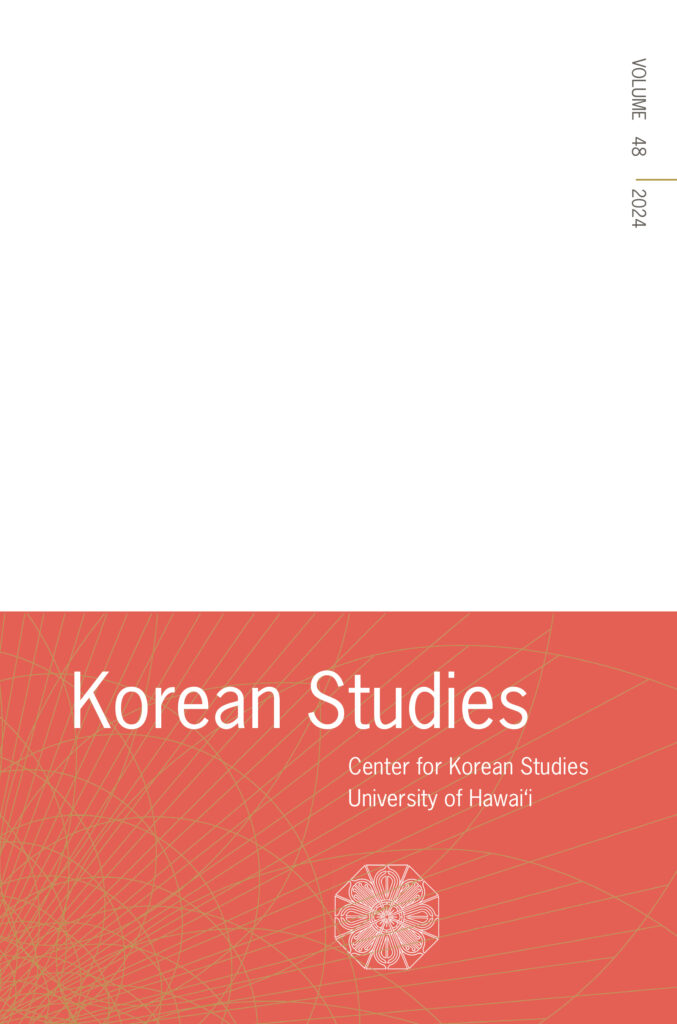
Korean Studies
Special Section: A Translational Reading of the Invention of Korea’s Confucian Traditions
Special Section: Portrayals of Motherhood in South Koran Popular and Practices Culture
Volume 48 (2024)
Editor Cheehyung Harrison Kim introduces this issue and the two Special Sections:
Two interconnected Special Sections are at the core of this volume. The first is titled “A Transnational Reading of the Invention of Korea’s Confucian Traditions,” exceptionally guest edited by Daham Chong (Sangmyung University). The second is guest editor Bonnie Tilland’s (Leiden University) superb “Portrayals of Motherhood in South Korean Popular and Practiced Culture.” Confucianism and motherhood are notions and practices tied to the ideological perception of constancy, on the one hand, and the shifting epistemological norms based on cultural and historical exigencies, on the other. The authors of the two Special Sections question and explore various historical and cultural predicaments of Confucianism and motherhood in modern and contemporary Korea.
The Special Section on the invention of Confucian traditions begins with Daham Chong’s meticulous account of the influence Max Weber had on modern Korean historians’ comprehension of Confucianism-derived systems in late Koryǒ and early Chosǒn, namely the civil service examination. Young-chan Choi (University of Oxford) adroitly investigates the epistemological changes distinctly occurring in late nineteenth century Korea, in which Confucianism comes to be seen as inferior to the modernist understandings of the world stemming from Protestantism. The postliberation space is Kim Hunjoo’s (Hanbat National University) research area, where the process of remaking Confucianism as a new tradition is carefully scrutinized in relation to the nation building process. The final piece in this Special Section is on literary culture. Owen Stampton’s (University of British Columbia) sophisticated article probes into the tension between tradition and modern life as experienced by women characters in Yi Kwang-su’s 1917 play Kyuhan, as well as discussing the birth of the modern stage in Korea.
Split Inalienable Coding in the East Bird’s Head Family
Laura Arnold
Observations on Tagalog Genitive Inversion
Henrison Hsieh
Variation and Change in Jakarta Indonesian: Evidence from Final Glottals
Ferdinan Okki Kurniawan
When Sound Change Obscures Morphosyntax: Insights from Seediq
Victoria Chen
Lexical Evidence in Austronesian for an Austroasiatic presence in Borneo
Juliette Blevins and Daniel Kaufman
Find these articles, squids, and more at Project MUSE.

Mānoa
Volume 36, Number 1 (2024)
Special Issue: Karahee from the Cane Fields
Guest Editor Rajiv Mohabir introduces this issue:
This special issue of Mānoa represents new writing from established and emerging voices from this particular diaspora, one that I am intimately tied to through my history and through the spirits that haunt me still. The British took Indians from the depots in the then ports of Calcutta and Madras in repurposed slave ships to their settlements and colonies in Fiji, Mauritius, Reunion, South Africa, Jamaica, Trinidad, Guyana, and Surinam. This issue includes writers from these various sites and plantation communities who have Creolized and changed through staying past their indenture contracts. Several generations after this settling by ancestors who were coolies bound to Empire, these writers and artists practice. This issue of writing from the Coolie Diaspora asks: what is the inheritance of the cane field, the cane-sap residue marking the descendants of this system of indenture?
Find Editor’s note, articles, songs, meditations, and more at Project MUSE.
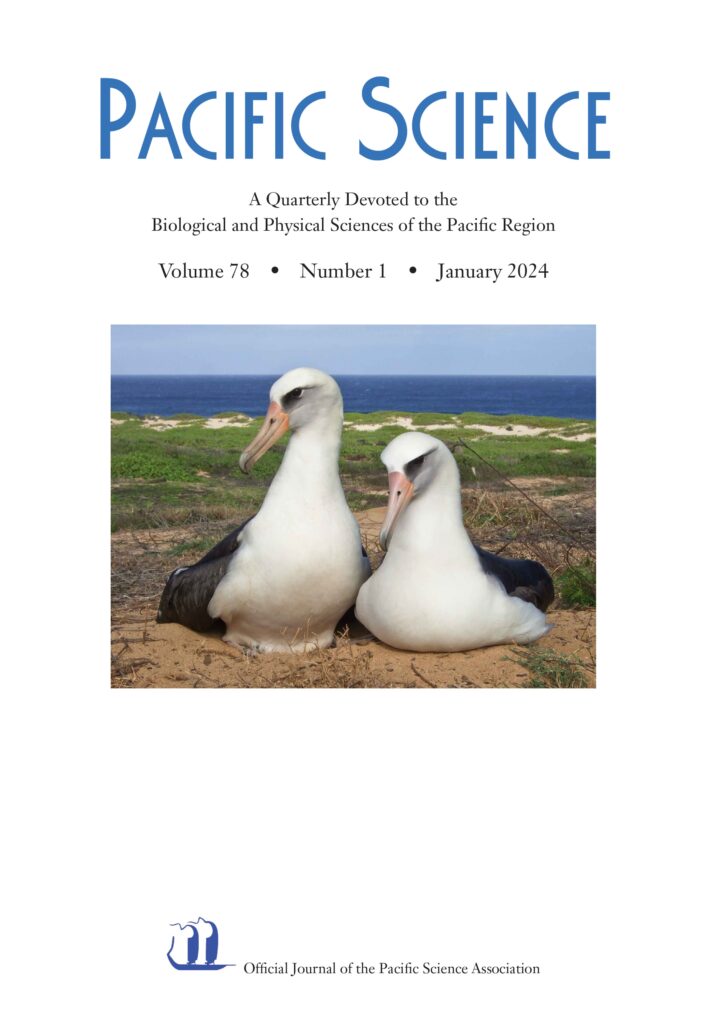
Pacific Science
Volume 78, Issue 1 (2024)
Pre-Contact Vegetation and Persistence of Polynesian Cultigens in Hālawa Valley, Moloka‘i
Patrick V. Kirch, Mark Horrocks, Gail Murakami, Noa Kekuewa Lincoln, Dolly Autufuga, and Jillian Swift
Nesting Success of Lepidochelys olivacea (Cheloniidae) In Situ Incubation in the Cabo Pulmo National Park, Baja California Sur, Mexico
Mónica E. García-Garduño, Elena Solana-Arellano, Carlos R. Godínez-Reyes, Paula Aguilar-Claussell, and David Ramírez-Delgado
Biology and Impacts of Pacific Islands Invasive Species: Falcataria falcata (Miquel) Barneby and Grimes (Fabaceae)
R. Flint Hughes, Aidan Anderson, David R. Clements, Joanna Norton, and Rebecca Ostertag
The Impact of Light Attraction on Adult Seabirds and the Effectiveness of Minimization Actions
André F. Raine, Scott Driskill, Jennifer Rothe, Stephen Rossiter, Jason Gregg, Tracy Anderson, and Marc S. Travers
Status of Laysan and Black-Footed Albatrosses on O’ahu, Hawai’i
Lindsay C. Young, Eric A. VanderWerf, Erika M. Dittmar, C. Robert Kohley, Kelly Goodale, Sheldon M. Plentovich, and Lesley MacPherson
Find these articles and more at Project MUSE.
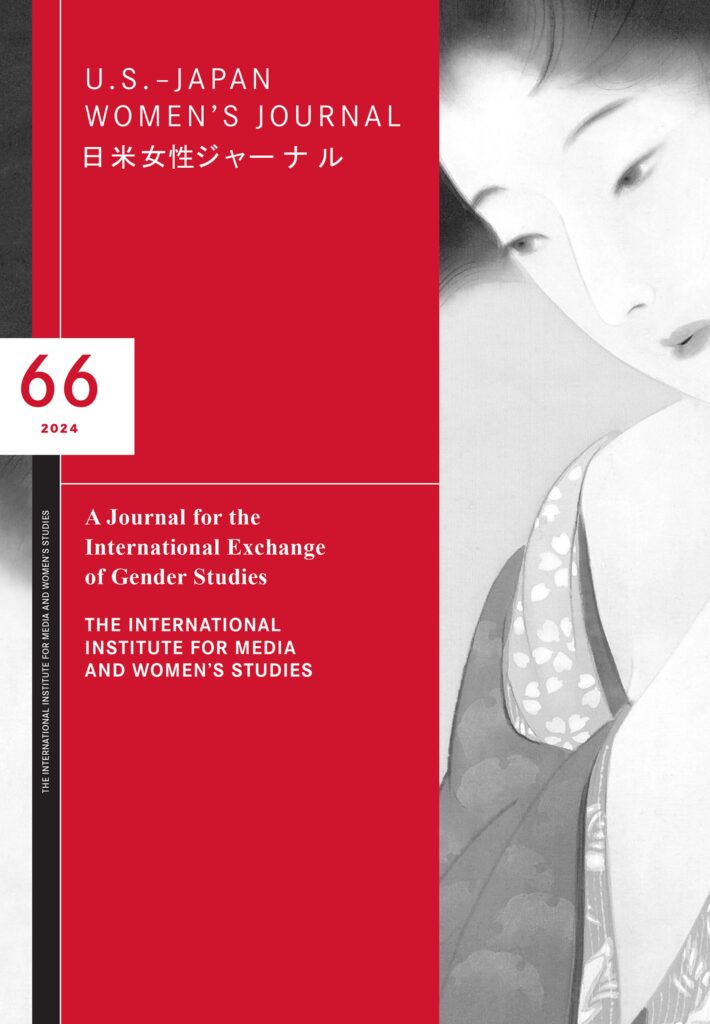
U.S.-Japan Women’s Journal
Volume 66, Issue 2 (2024)
Osaki Midori: The World of Wandering in the Realm of the Seventh Sense (Part 2)
尾崎翠・「第七官界彷徨」の世界
Mizuta Noriko (Translated by Wachi Yasuko and Jennifer Cullen)
Identity, Gender, and Empire: A Japanese American Woman’s Tourist Gaze in Prewar Japan
アイデンティティ、ジェンダー、帝国:戦前期日本 における日系アメリカ人女性の観光のまなざし
Katsura Yamamoto
“Under this clear, smooth skin, blood too terrifying to hear of?” Araya Kōga and Gendered Representations of Hansen’s Disease
「この鮮明な滑かな皮膚の下に、聞くも怖しい血」-荒屋香芽とハンセン病に関するジェンダー化さ れた描写
Kathryn M. Tanaka
『恋衣』英訳(3):与謝野晶子の「曙染」と新体詩
Nicholas Albertson
Find these articles and more at Project MUSE.




